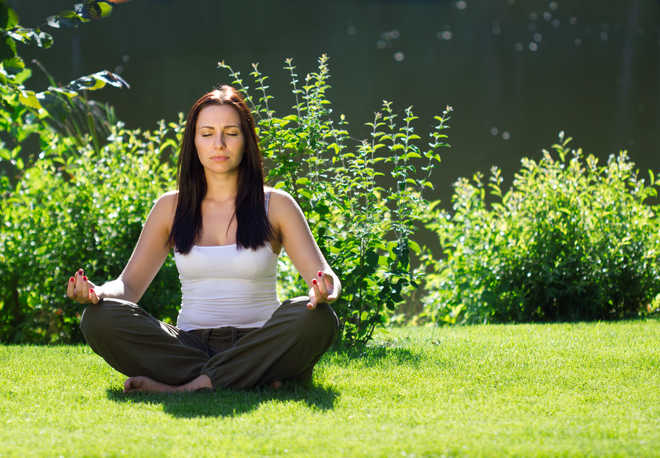
Kavita Devgan
It may seem like the simplest vitamin to stock up on, given that our body can naturally synthesise it with the help of sunlight. Yet, over 70 per cent of the Indian population has a vitamin D deficiency. Surprising, isn’t it?
A doctor may suspect that you have low vitamin D levels if you complain of muscle weakness, aches or bone pain. In addition, some groups of people such as those who have darker skin, spend less time in the sunlight, new mothers who are breastfeeding, those taking certain medications (anti-convulsants, glucocorticoids), and/or are older than 65 years, these groups are at a higher risk for this deficiency. Studies have shown that those with a vitamin-D deficiency have a higher risk of heart disease, diabetes, complications during pregnancy and even cancer. However, those having a vitamin D deficiency can take certain measures to resolve the problem. Here are some things to remember:
The S factor
The basics to remember are four “S” — Skin, Sun, Sustenance (food) and Supplements. Ideally, most of the vitamin D a body needs is produced by the skin when it is exposed to the sun’s ultraviolet B rays (this vitamin D is often referred to as vitamin D3; vitamin D2 is only found in plant sources). However, since it is a well established fact that too much sunlight can lead to skin ageing and cancer, people often look for other sources of this vitamin.
Vitamin D is found in varying amounts in fortified milk, yogurt and cereals, egg yolk and fatty fish (salmon, tuna and mackerel). There is also a wide variety of vitamin D supplements available in a range of dosages that can help you meet your daily requirements of this vitamin.
Sun exposure ideal, but not enough
Exposing bare skin to the sun between 11 am and 2 pm helps the body produce an adequate amount of vitamin D. However, given the hot climate, cloud cover, the indoor nature of our jobs, our cultural dressing habit and the increasing use of sunscreens, it is easy to see why many Indians are vitamin D-deficient despite there being no dearth of sunlight. How much time should one spend in the sun is also a matter of debate — the usual range is five minutes to 30 minutes of sunlight, at least twice a week.
Indians who are dark skinned have several advantages because of the higher content of the pigment, melanin, in their skin that acts as a natural sunscreen and helps protects them from excessive sun damage. However, because of the melanin, those who are darker-skinned produce, less vitamin D than those who are fair-skinned and exposed to the same amount of sunlight. This means dark-skinned people require more sun exposure to produce the same amount of vitamin D as those who are fair skinned.
Traditional Indian diets inadequate
We need to meet about a tenth of our daily vitamin D requirement (400 IU or 10 mcg vitamin D3; half the dose in areas with good sunlight) from our diet but this is often not the case. Indian diets are mostly either vegetarian or have a large proportion of vegetables. While this is a good diet for overall health, vegetables are not rich sources of vitamin D. Even milk contains very little vitamin D unless it is fortified with the vitamin. However, such fortified dairy products are not widely available or consumed in India. Moreover, Indian diets are rich in bran, cereals, legumes that contain “phytates” which contribute to low vitamin D levels. In short, vegetarians are at a higher risk of being deficient in vitamin D.
Good for bone health
We often associate bone health with calcium. However, vitamin D is also an important player. Therefore, many calcium supplements also contain vitamin D. Low levels of vitamin D translate to less calcium being absorbed in the body, which in the long run can lead to weakening of bones or brittle bones and osteoporosis. Maintaining adequate levels of vitamin D helps to maintain bone strength, prevent falls and fractures and prevent osteoporosis later in life.
Role of supplements
If you have low levels of vitamin D, your doctor may ask you to take a vitamin D supplement to raise your levels and keep them within the healthy range. There are a number of supplements available in the Indian market, in varying dosages, so make sure you take the supplement your doctor has recommended, for as long as you have been advised.
— The writer is nutritionist, Smile Studio, Delhi



























